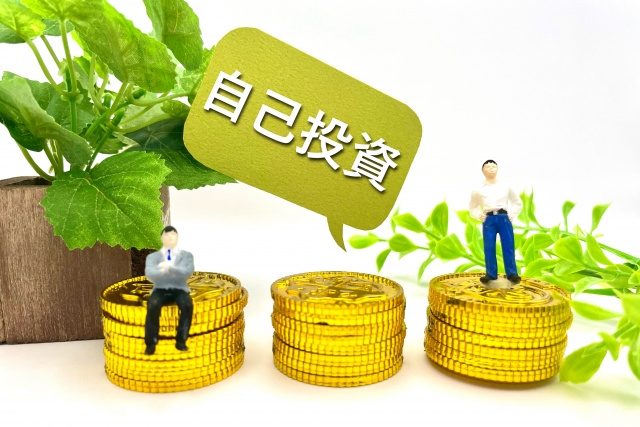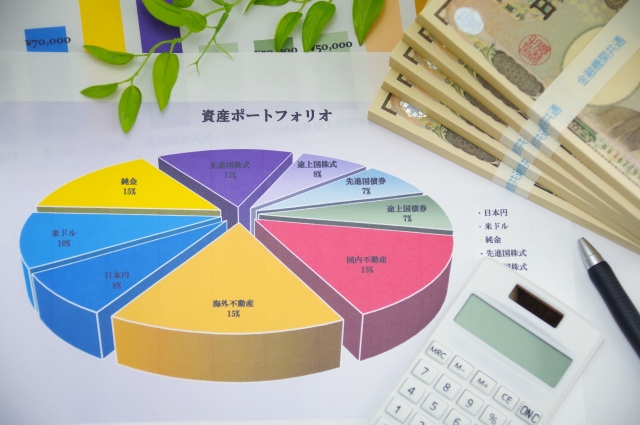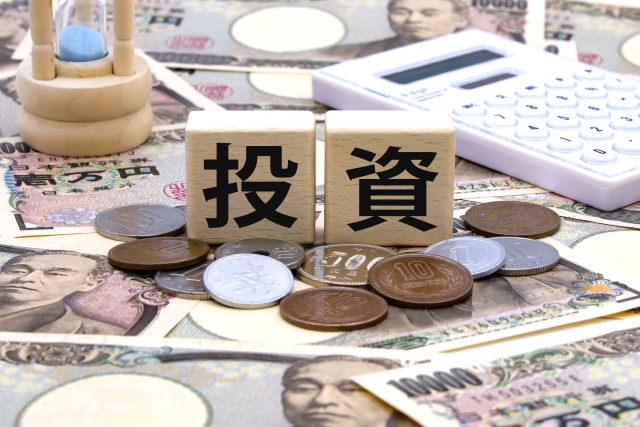In today's economic environment, many experts suggest that simply saving money is not enough.Investments are an important means of steadily increasing assets while keeping pace with inflation and interest rate fluctuations.However, investing involves risks and requires the right knowledge and strategy. In this article, a licensed financial planner and administrative assistant explains the first steps to start investing and even tips for success that are easy to understand even for beginners. We hope you will find it useful as you take your first steps toward building your wealth.
People who should read this article
People who are thinking about starting to invest.
People who have just started investing and don't know much about it yet.
People who want to understand the step-by-step process of preparing to start investing.
People who want to learn about insurance
People who are considering saving money on their current insurance policy.
What preparations should be made before starting an investment?
In 2024, when the new NISA starts, the Japanese economy will have emerged from 30 years of prolonged deflation and is beginning to grow again, becoming a society with an inflationary economy.
In the first half of 2024, stock prices rose worldwide and the Nikkei Stock Average reached the 40,000-yen level for the first time in history. For those who started investing this year, many were happy to see profits as soon as they started investing, but in August, it recorded the largest drop in its history. At the same time, the yen's appreciation caused stocks and mutual funds denominated in U.S. dollars, in which many people invest, to plummet to the point where their profits were wiped out in a single day.
In this rapidly changing economic environment, I would like to summarize what you should do before starting to invest for those who are considering starting to invest, those who withdrew their investment funds after the August crash, and those who are too scared to start investing.
Steps to start investing
In order to grow your assets through investment, you must first prepare funds for investment. To do so, you must first develop your "saving power.
Before you give up and say, "I can barely make ends meet on my current salary, so saving money is impossible," take a look at your family budget. The following items are particularly important.
- Cell phone bill: why not a cheap phone?
- Various subs: Is there a video service you haven't seen for a long time?
- Drinking and dining expenses: Are you going to dinners you don't feel like going to as you are invited?
When it comes to saving money, people say things like "turn off the lights frequently," but I don't recommend it. Being more nervous than necessary about small amounts of money has little effect, and it causes stress. This stress will become troublesome over time, and you will stop saving, which will not lead to the growth of your "saving power.
Similarly, it is counterproductive to force yourself to completely stop video services, drinking, etc. For video services, sign up only for the month in which there is a program you want to watch and stop signing up for the following month. For example, if you really want to go to a drinking party and it is necessary, attend it.
Aim for frugality, not savings.

Insurance that was recommended by someone a long time ago, insurance that you have somehow taken out because you think you need it in case something happens to you,Do you really need that insurance for the rest of your life?
Insurance" is a mechanism to protect against financial loss or risk due to unexpected events. Through an insurance policy, the policyholder (insured) pays regular premiums and receives financial compensation from the insurance company in the event of an unexpected event.
Necessary insurance is needed for the future, such as life insurance for minor children, and student insurance for children's education expenses.
However, when we review our insurance policies, we often find that we have multiple policies with the same coverage. The following types of insurance policies may not be necessary.
- Life insurance that continues after the children are independent.
- Medical insurance that was in place long ago and is not in line with the current health care system.
- Unnecessarily expensive medical insurance
- Savings insurance that I took out thinking it was an alternative to savings because of the return of maturity refunds.
- Foreign currency insurance with attractive interest rates
The life insurance coverage rate in Japan is said to be about 781 TP3T. Do we need that much insurance?
Japan is quite heavily protected by the universal health insurance system, and there is also a system that compensates for medical expenses above a certain level through the high medical expense system. Please review this system based on your income, family structure, and the amount of savings you have in case of emergency.
It was also popular for a while.I have to say that savings-type foreign currency insurance, for example, is really a waste of money.Insurance and savings should be viewed as two separate things.
There are many complicated insurance products, and it is often difficult to determine which ones are necessary and which ones are unnecessary. Many people are recommended to purchase different insurance policies when they consult with their insurance company. If you currently have three or more insurance policies, or if your monthly premiums are more than 5% of your income, please contact us.We strongly recommend that you seek the opinion of a "professional who does not sell insurance products," such as a financial planner.
investmentandinsuranceare both means of preparing for future risks and objectives, but they differ in their objectives, structure, and nature of risk. The following are the differences
Objective.
- investment:The main objective is to increase assets.It invests money in stocks, bonds, real estate, etc., and seeks to profit from future increases in their value. Re.It is the act of taking risks in order to earn a turn (profit).
- insuranceThe purpose is: to provide for contingencies (e.g., illness, accident, death, etc.). The purpose is to "compensate for economic losses",It is a means of avoiding or mitigating risk.
risk
- investment:Risk is high and there is a possibility of loss of principal (decrease in the amount invested).Returns are uncertain because profits and losses are dependent on market fluctuations and the performance of the investment.
- insurance: The purpose is to avoid risk and to obtain compensation based on the contract, which provides a certain level of compensation if the conditions are met for the insurance payment to occur.While covering significant risk, returns are not guaranteed.
Period
- investment: Often aimed at long-term asset building, but short-term investments are also possible.The process of increasing assets typically takes time.
- insurance: It is important to know when you need coverage and for how long in order to be prepared in the event of an eventuality. Some policies have a fixed term, while others are whole life type,Basically, insurance works "when something happens".
profitability
- investmentThe market is a market that is profitable.While success can lead to profits that exceed the principal amount, there is also the possibility of losses.
- insurance:It is not intended to generate revenue.By paying premiums, though, you receive compensation when the risk materializes,Basically, premiums are considered "costs".
5. cost
- investment: Fees and management costs will be incurred depending on the investment, but if profits are earned, the potential for earnings may outweigh the costs.
- insuranceThe periodic insurance premiums are an "expense" to cover risk and do not usually increase assets by themselves.
summary
- investmentis to increase assetsThe act of taking a risk and expecting a return.
- insuranceis to be prepared for any risk,Expenditures aimed at risk aversion.Insurance products with high premiums, such as products with expected maturity refunds, are not recommended. Insurance and investment should be considered separately.

Deposit power is the most important factor in growing assets.
As mentioned in another column, in today's societyThe highest yielding investment is "self-investment".
The following are examples of self-investment. Studying and obtaining qualifications are by no means the only ways to invest in yourself. Together with the savings introduced in Step 1, just keeping them in mind and being a little conscious of them in your daily life may change your future.
- Increase your salary with work-related studies.
- Qualify and change jobs, start a side business, or start your own business.
- Save time on household chores, side work, and study with the latest appliances.
- Go to a sports club and get fit.
- Buy investment books to increase your financial literacy and prepare for investing.
- Attend quality dinners and seminars to create a network that will become an asset.
As you can see, saving and self-investment are in close proximity.Does the money you are about to spend lead to earning power? Is it just a waste of money?Just by getting into the habit of feeling daily, you can improve your deposit ability.
Time and health also create life's greatest earning power.Use your investment sparingly to gain that power. For example, if you are healthy and can work after age 65, even a part-time job with an annual income of 2 million yen for 10 years until age 75 will be worth 20 million yen.

The next task is to secure a "living defense fund.
life insurance fundrefers to funds set aside to cover normal living expenses in case of an unexpected decrease in income or emergency expenses. It is especially important to maintain daily living in the event of illness, unemployment, disaster, or other unforeseen events.
The amount recommended as a living defense fund,Three to six months' worth of living expenses are typical... Some people may find it desirable to set aside a year's worth of living expenses. The guideline depends on individual lifestyles, job stability, family structure, and income volatility.
Liquidity," which can be withdrawn at any time, is important for a living defense fund.The basic idea is to hold the money in assets that are safe and can be converted to cash quickly, such as savings and savings accounts.
After all this time, we finally got to this point.Plan your investment. Do not start investing immediately.
After properly securing funds for living defense, make a plan on how to proceed with investments with surplus funds.
It is not just for investment or asset growth.If you simply keep your money in the bank in a savings or time deposit, inflation will drive up the price of goods and their real value will diminish rapidly. Beating Inflation.We also need "the ability to protect our assets."
Our recommendation is a "low-cost index fund" that we expect to perform in line with the average growth of the market. Never go to a bank or brokerage firm without thinking about it and buy the recommended product.
The products recommended by banks and brokerage firms are often "recommendations that will make the financial institution profitable".
The basis of investment is a portfolio.

What is an "investment portfolio?"A strategy that aims to maximize returns while managing risk by diversifying investments across multiple assets and financial instrumentsrefers to. Investments by individuals and institutions are composed of a combination of different asset classes, including stocks, bonds, real estate, commodities, cash, and even crypto assets.
Start investing only after you have an appropriate portfolio according to your risk tolerance.
summary
How was it?
Investments do not always make money. If the investment is made over a long period of time, it will...There will always be a crash.Nevertheless, history has proven that as long as the world economy develops, stock prices will continue to rise steadily. By reviewing your life, improving your ability to make deposits, and understanding the market, you will be able to manage your assets to withstand the crash.
Also, the basics of investment are "long-term, diversified, and accumulated. If you diversify your assets over a long period of time and accumulate within a reasonable range, your assets will continue to grow in the long run. Start investing with a solid plan by following the above steps.
If you are still concerned about investing, do not know what to do, or feel that you cannot save your money, asset management is a major factor that will affect your life. We recommend that you take the time to consider it with the help of a professional such as a financial planner.




Comments